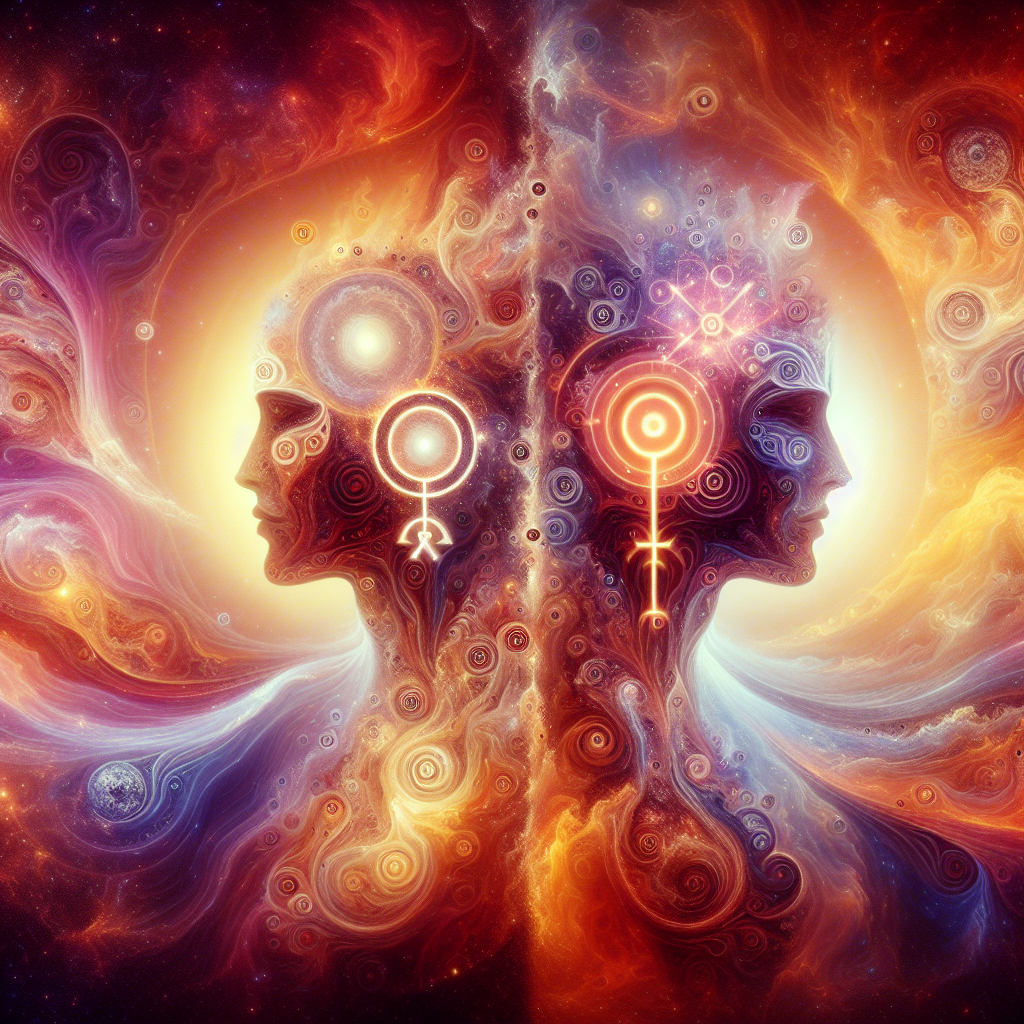Spiritual Devotional about The Divine Feminine and Masculine
The Divine Balance: Feminine and Masculine in Spirituality and Biblical Principles
Balance. Harmony. Unity. These are not merely words; they encapsulate the very essence of the universe and our divine spirits. Central among these principles are the Divine Feminine and the Divine Masculine, two complementary forces that exist within each of us and around us, shaping our lives and spiritual journeys.
The Divine Feminine refers to the spiritual concept related to traits of nurturing, understanding, patience, compassion, and love. It is a universal energy that may be accessed regardless of gender. Similarly, the Divine Masculine represents action, logic, resilience, and strength. In the Bible, these principles are represented time and time again, celebrating their unity and balance.
Reflections in the Bible
In the Genesis creation narrative, God says: “Let Us make man in Our image, according to Our likeness… Male and female He created them” (Genesis 1:26-27), Evidently, humanity is crafted in the likeness of the Divine – embodying both the Divine Masculine and Feminine.
Spiritually, one may identify the Divine Masculine symbolized in figures such as King David, demonstrating leadership and courage. Similarly, the characteristics of the Divine Feminine are prevalent in figures like Mary Magdalene, who personifies unconditional love, compassion, and wisdom. Together, their stories show how we can harmoniously blend these energies within us.
Marrying the Feminine and Masculine Within
Our Spiritual journey invites us to harness these divine energies. For instance, when we express compassion (Divine Feminine) while standing up for justice (Divine Masculine), we bring these energies into balance. Consequently, we experience a deeper connection with God, ourselves, and others.
To fully yield the fruit of the divine balance, prayer and mindfulness are key. As we intentionally invite both energies into our daily lives, they empower us to walk in truth and light, influencing all our interactions positively.
Remember, our Creator made us in His image, male and female – an embodiment of both the Divine Masculine and Feminine. It’s in embracing both sides of this divine energy that we grow spiritually, live more authentically, and form a deeper connection with God.
Conclusion
The spiritual journey of recognizing, accepting, and harmonizing the Divine Feminine and Masculine can transform your life in beautiful and cosmic ways. These energies remind us that our might isn’t mere. We are made in the likeness of the Divine and bear witness to His creation’s balance and unity. As we unfurl these divine elements, our unique spiritual journeys become sanctuaries of hope, light, love, strength, and divine truth.
Explore and dig up answers yourself with our BGodInspired Bible Tools! Be careful – each interaction is like a new treasure hunt… you can get lost for hours 🙂
Q&A about The Divine Feminine and Masculine
Q: What are the Divine Feminine and Divine Masculine?
A: The Divine Feminine and Masculine are spiritual concepts that transcend gender and sexual identity. They represent dualistic aspects of the universe and human nature. The Divine Feminine carries traits traditionally linked to femininity such as tenderness, sensitivity, nurturing, and intuition, whereas the Divine Masculine represents characteristics such as logic, reason, action, and leadership.
Q: In which cultures is the concept of the Divine Feminine and Masculine found?
A: This concept is found in various cultures, including those of ancient Greece, India, China, and indigenous societies. It is prevalent in spiritual beliefs such as Hinduism, Taoism, Mythology, and even in Christianity to some extent.
Q: How can I balance the Divine Feminine and Masculine within myself?
A: Balancing these energies involves acknowledging and nourishing both aspects within oneself. You might want to practice mindfulness, setting boundaries, self-care and compassion (divine feminine traits), and assertiveness, decision making, and leadership (divine masculine traits), regardless of your gender.
Q: Is the Divine Masculine always held by a man and the Divine Feminine always held by a woman?
A: No, the Divine Masculine and Divine Feminine are not tied to one’s physical gender or sexuality. They represent balances of energy and traits within all of us, regardless of our biological sex or gender identity.
Q: What are some examples of the Divine Feminine and Masculine in religion?
A: In Hinduism, the Divine Feminine is represented by goddesses like Parvati or Kali, while the Divine Masculine by gods like Shiva. In Taoism, Yin and Yang also represent this cosmic duality. In Greek mythology, Hera and Zeus can be seen as representations of the Divine Feminine and Masculine.


